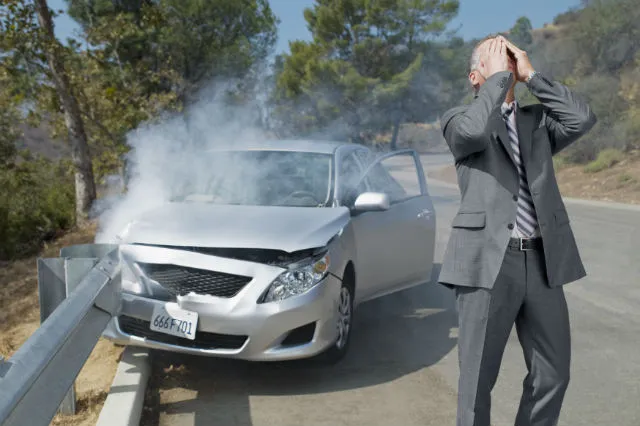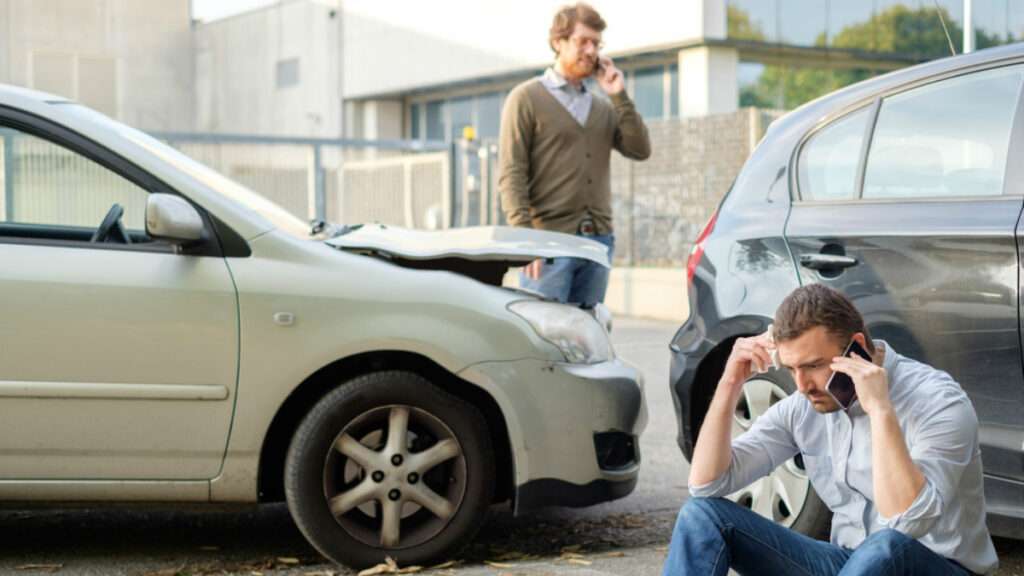What Happens if you Crash a Rental Car with Insurance What Takes Place if an insured rental car is reached: Getting into an automobile accident is stressful enough, but what if one of the drivers were driving a rental car?
There are additionally several issues that this can raise. To whom do the damages have a place? Which actions need to be taken immediately after the accident? And how is the insurance disputes stage negotiated?
We’ll guide you through the shoulds and musts if you find themselves in this unpleasant situation, such as evaluating your coverage options and avoiding typical mistakes that could make issues worst.
Have a query on a certain scenario? The car accident lawyers at Niemeyer, Grebel, and Kruse in St. Louis are ready to assist you. Call 341-241-1919 to make a time frame.
What to Do Immediately Following A Rental Car Accident
Following an automobile collision, your first duty should be to ensure that everyone involved is safe and, if injured, gets the appropriate medical attention. Next, you should focus on protecting the accident scene to prevent subsequent mishaps.

Checking for Injuries and Securing the Scene
After a rental automobile accident, it’s critical to assess the situation. Examine yourself and all other parties involved for any injuries that require emergency treatment.
Remember that some injuries may not be obvious right away due to the shock of the collision. Pay close attention to how they feel in the coming hours and days, and never hesitate to see a doctor if you suspect something is wrong.
After the initial health check, the next step is to protect the accident area. This helps prevent future accidents, protects everyone involved, and keeps traffic flowing. If possible, get the cars involved in the accident out of the road.
Contact authority and file a police report
Your local police agency will submit an official accident report to memorialize the incident. This report provides an objective record of the accident, including important facts such as the time, place, and persons involved.
The police report is not merely a bureaucratic requirement. It includes critical evidence such as eyewitness accounts, photographs, and video surveillance. This can help with negligence claims after a rental automobile accident. The report can be used to determine who is at fault, therefore notify the authorities as soon as possible after the accident.
Next, Notify Your Renting Automobile Company
After you’ve confirmed everyone’s safety and informed the authorities, the following step is to notify the rental car agency of the accident. This is an important step since it allows the agency to provide instructions on their specific procedures after an accident, such as arranging for a replacement vehicle or handling insurance claims.

Look for their emergency numbers, which are usually available in the glove box or on the rental agreement. Remember to complete their incident report, which will provide them with all the relevant facts concerning the collision.
Knowing Your Rent Agreements and Insurance Protection
With the most pressing aspects out of the way, let’s look at how things play out between the rental car business and your insurance.
Your personal auto insurance policy may protect you when driving a rental car, but depending on the specific coverage, you may not be covered in all situations or amounts of damage. Rental car companies provide numerous types of insurance, such as collision damage waivers, liability insurance, and personal accident insurance, which can cover a variety of components of an accident, including injuries and damage to personal belongings.
Personal Auto Insurance:
Personal auto insurance packages that include collision and comprehensive coverage frequently cover rental vehicles used for personal purposes. This means that your own insurance may cover rental car damage or medical expenses caused by an accident.
However, before renting a car, double-check the information on your personal auto insurance policy. If your policy does not provide adequate coverage for rental cars, you should consider purchasing additional insurance from the rental agency.
Knowing Rent Car Insurance:
If your personal car insurance policy does not cover rental situations, you should consider acquiring coverage from your rental agency (although this may include a fee).
One of the most popular options is the collision damage waiver (CDW), sometimes known as the loss damage waiver (LDW). Renters can purchase this waiver to cover repair or replacement costs in the event that their rental vehicle is damaged or destroyed in an accident, theft, or vandalism.
However, a CDW or LDW is merely one type of possible defense. Renters may also consider additional insurance options to ensure complete coverage:
Rental Car Insurance Overview
- Liability Coverage: Covers legal liability for harm or damage caused by rental car. Doesn’t cover rental vehicle damage.
- Personal Accident Insurance (PAI): Covers medical expenses for driver and passengers in accidents. Includes compensation for death, dismemberment, ambulance bills, and medical expenses.
- Personal Effects Coverage (PEC): Protects personal belongings in the rental vehicle. Reimburses for loss up to a specified amount.
Each of these insurance packages offers a different level of coverage, and the price varies according on the rental company and location. Renters must understand what each coverage plan covers and excludes, analyze their particular risk, and determine what insurance they need to have a worry-free rental experience.
Credit Card and Third-Party Policies
Aside from your personal auto insurance and the rental agency’s coverage, there are other insurance options available. Credit card rental car insurance, for example, can serve as either primary or supplementary coverage. To activate this coverage, charge the full rental price to the card, ensure that the rental is in your name, and deny the rental company’s collision damage waiver.
Third-party companies also provide standalone rental car insurance policies. These are an alternative to credit card insurance and may be more suitable for some tenants. However, it is important to note that credit card rental car coverage frequently excludes certain vehicle types, long-term rentals, and rentals in foreign countries.
What Are the Financial Consequences of Damage to a Rent Car?
When you rent a car, any damage might have substantial financial costs. Understanding who pays for what and any potential additional charges will help you plan ahead of time and potentially save money.
Who pays for what’s happening?
In Missouri, responsibility for rental automobile damages is normally determined by the rental agreement and the insurance plans in effect. Here’s the breakdown:
- Collision Damage Waiver (CDW)/Loss Damage Waiver (LDW): Depending on the waiver terms, you might not be responsible for damage costs.
- Personal Auto Insurance: Coverage of rental cars may be included in your policy, but claims may affect personal insurance premiums.
- Credit Card Insurance: Many credit cards offer rental car insurance, typically covering damage or theft.
- Rental Company: If you decline additional coverage, you could be fully responsible for repair or replacement costs if the vehicle is damaged or stolen.
Other costs you might face
Missouri Rental Vehicle Charges
- Loss of Use: Rental companies in Missouri may charge for revenue lost during damaged car repairs. This is based on daily rental rate and service days.
- Diminished Value: This fee compensates for reduced vehicle’s resale value due to damages. Calculation is complex and requires professional assessment.
- Administrative Fees: These cover administrative costs of processing accident claims.
- Towing and Storage: Additional charges may apply if the rental vehicle needs to be towed and stored post-accident.
Legal Issues and Obtaining Payment
- Missouri is an “at-fault” state, requiring the driver who caused the accident to cover the other driver’s expenses.
- The state uses a comparative fault system, assigning fault based on the drivers’ actions leading up to the crash.
- Dealing with rental agencies and insurance companies can be complex, requiring the assistance of a skilled personal injury attorney.
When you Need an Attorney
There is frequently no need to consult with an attorney in the case of “fender benders” and simple crashes that do not result in injuries. However, as previously said, there are specific situations in which getting legal guidance is a good idea:
Missouri Attorney Services:
- Navigating Complex Fault Issues: Lawyers assist in navigating comparative fault laws in Missouri.
- Managing Severe Injuries: Lawyers ensure full compensation for medical expenses, lost wages, and pain and suffering.
- Negotiating with Non-Cooperative Insurance Companies: Lawyers negotiate fair settlements for claims.
- Managing Multiple Parties Involved: Legal expertise is crucial in handling accidents involving multiple parties.
A skilled attorney offers vital help and counsel, defending your rights while navigating legal and procedural difficulties.